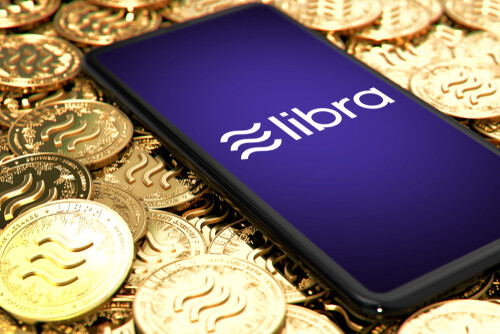Big data has had wonderful implications for our lives. However, there is a dark side. Big data raises very valid privacy concerns. Tech Republic wrote about this in their 2017 post Big Data Privacy is a Bigger Issue than You Think.
Concerns about big data privacy are highlighted by a new project Facebook is working on – the Libra currency project. You need to keep this in mind while deciding how much data you want to extend to Facebook.
Libra Raises Facebook Data Privacy Concerns
Facebook’s reputation has been repeatedly shaken over the last couple of years – and many of them had to do with data. Facebook is a data collecting machine: its billions of users willingly tell it what they like, what they hate, what their religion, location, and heaps of other information about themselves.
According to Pew Research, 51% of all U.S. adults say that they don?t trust social media sites with their data. Facebook?s behavior has caused a lot of this uneasiness.
Facebook even follows its users beyond its own homepage, recording what products they check out and what blogs they read. Users have been complaining all over the internet about ads following them around wherever they go. They have Facebook to thank for at least part of these. The trust in Facebook has decreased to a historic low in the last two years. But now, the same blue giant that has been in the middle of so many data leaks and scandals in the last year now asks its users to trust it with even more information about themselves: what they buy, where, and for how much.
Money is data
In the white paper outlining the workings of Facebook’s upcoming currency called “Libra”, the company has compared payments to communication. “Moving money around globally should be as easy and cost-effective as – and even more safe and secure than – sending a text message or sharing a photo,” the document reads. This statement has more than a bit of truth in it. As opposed to communication, money movements are neither simple nor cheap today. Facebook’s vision of the future’s financial network makes it very similar to a social network where money flows easily from user to user, and from user to merchant, beating even the modern payment methods offered by modern casinos and online service providers. By doing so, in turn, it will contribute to the already massive pile of data the social network already has.
It’s not a cryptocurrency
While most people refer to Libra as Facebook’s “cryptocurrency”, it does not fit the description. True, it is based on the same technology introduced with Bitcoin – a distributed ledger, better known as the “blockchain”. The similarities end here, though.
Where Bitcoin is not controlled by anyone, Libra will be controlled by the Libra Association that is planned to have at least 100 members by the time Facebook hopes to launch its new currency (sometime next year). All big data attached to Libra belong to Facebook. And while the value of a Bitcoin depends on the offer and demand, making it a pretty volatile currency (just take a look at its price fluctuations from the last few years), Libra will have a pile of cash behind it, contributed to a massive pool by all the members of the Association – companies like eBay, PayPal, Visa, MasterCard, Spotify, Uber, and many others. This means that it will be far less volatile than any other similar currency out there.
Where Bitcoin was a completely decentralized currency, with no corporation, no governments, no individuals in control of it. Libra, while using the same decentralized ledger, puts control of the currency in the hands of a governing body. And while the Association will be a not-for-profit itself, its constituents are for-profit corporations – payment processors, service providers, and – indirectly – the social network itself.
A massive user base. I mean, massive
How big will Libra be if it ever turns into reality? Let’s take a brief look at how many customers the founding members of the Libra Association has.
On one hand, we have Facebook (2+ billion users), Visa (over 2 billion cards and 40+ million merchants), eBay (180 million users), PayPal (over 250 million), and the list could go on and one. And if the idea sticks (and why wouldn’t it) more companies are expected to jump the bandwagon, bringing their user bases with them. Over time, it may grow into a massive international juggernaut with huge assets under its control, too big to be effectively regulated.
Facebook Libra Instills New Fears of Privacy Over Big Data
has created new privacy concerns. Just like Facebook has. And we’ve all seen where it has all led, right? Libra is a tool that relies extensively on big data. It might be invaluable, but it is unlikely to protect our privacy.









